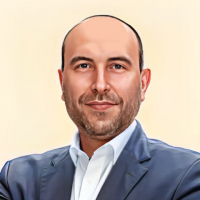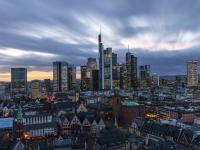Luxembourg has never felt like a real country to me. It’s hard to explain, but it has always seemed like an anomaly in the heart of Europe. This perception is partly shaped by my upbringing, which kept me outside of Luxembourg’s social fabric.
Over 40 years ago, my parents moved here from Ireland. My mother got a job with the European Commission, which meant I would attend the European School in Kirchberg. Right from the start, I was different from students attending local public schools.
I essentially grew up in a bubble within a bubble. Yet, this alienation is not the only thing that shaped my perception of Luxembourg as not being a “real” country. Nothing exciting or important seemed to happen here; it felt boring.
The news featured global conflicts, sports channels broadcasted football events, and I’d hear about massive concerts in major capitals. As a child, my perception was shaped by entertainment. Today, it’s shaped by entirely different factors.
State-dominated economy
Strangely, and probably unlike in most countries, the most coveted jobs in Luxembourg were—and still are—government positions. Stories of bus drivers earning 4,000 euro net a month gave the impression that a good education wasn’t necessary to earn a decent living.
The government, along with state-backed companies such as CFL and Post Luxembourg, are among the largest employers in the country and offer above-average wages. Residents gravitate toward these roles and often avoid lower-paying private sector jobs.
Unlike in many countries, working for the government here is seen as both prestigious and secure.
Reliance on cross-border workers
As a result, private sector roles are largely filled by immigrants and cross-border workers, while strategic positions in state-backed companies are typically reserved for locals. The outcome? About 75 percent of the workforce is foreign, with many never working alongside locals.
This creates a curious dynamic where the local and foreign populations lead parallel lives that rarely intersect. Beyond the language barrier, interactions are limited because locals tend to work fewer hours and remain unfamiliar with the private sector’s realities.
Unlike in many countries, there is little integration of foreigners into Luxembourg’s local fabric.
Concentration on finance
The financial sector is Luxembourg’s largest private employer, accounting for around 30 percent of GDP and a significant portion of tax revenue. For non-locals seeking a high-paying job, finance is often the only viable option.
While the financial industry is a boon to the economy, this lack of sectoral diversity drives many to leave the country. Many of my fellow European School students never returned after university, as there were few roles suited to their skills and interests.
If you’re a foreigner in Luxembourg, it often feels like nearly everyone you meet works in finance.
This is my home, and I absolutely love it here. But I still wonder: will Luxembourg ever feel like a “real” country to me? It looks and feels like a place out of a fairytale, and maybe that’s not such a bad thing after all!
Gregory Kennedy is a columnist for Investment Officer Luxembourg. His columns appear every other week. He also works as a business development manager at Finsoft Luxembourg.


















